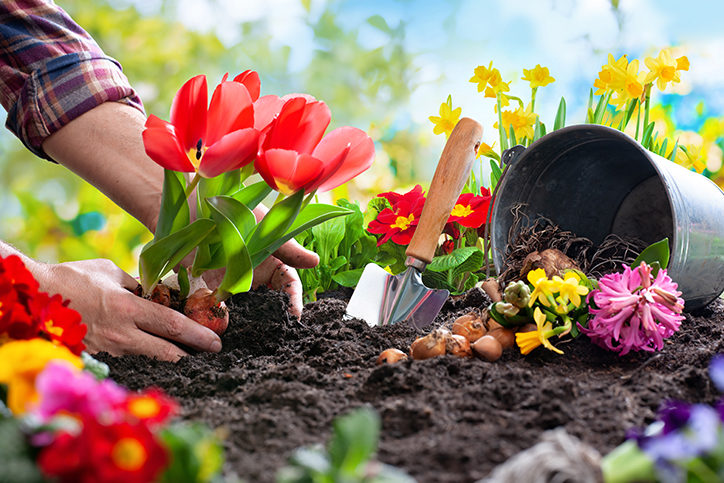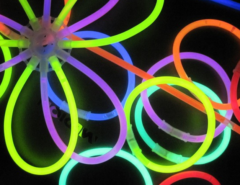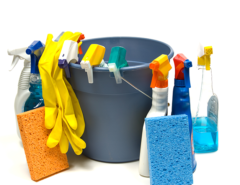Each season comes with different poison safety risks that we must keep in mind. During the spring season, life gets busy with the return of warm weather, kick-off of sports seasons, and spring break vacations. Below are some tips that will help you stay safe during spring cleaning, and while working in the yard or garden and opening swimming pools.
Spring Cleaning
Cleaning products and medicines are two common poisons. Both must be used and stored safely to prevent poisoning.
- Read the label and follow directions every time you use a cleaning product.
- Do not mix cleaners together. If you want to use more than one cleaner in the same area, use one product, rinse it completely away, then use the next product.
- If the smell of a cleaning product becomes overwhelming, open the doors and windows and/or turn on a fan. Leave the area until the smell goes away.
- Keep cleaning products in their original, labeled containers. Never put the products in food or beverage containers because they can easily be mistaken for something else.
- Store cleaning products up, away, and out of sight. If you have to leave the room you are cleaning, take the products with you or store them away first.
- Cleaning can also involve your medicine cabinet! Safely dispose of unused and expired medicines. Find a permanent drop-off location near you. The DEA also offers two Take Back Days each year, usually in April and October. You can also safely dispose of medicines at home using these instructions.
Yard and Garden Work
As the weather gets warmer and spring flowers begin to bloom, many people head outside to work in their yards and gardens. There are potential poisons outside of your home, too, including poisonous plants, venomous snakes, and garden or lawn care products.
- Know the names of plants and flowers in and around your yard. We have a poisonous plant list that describes some common poisonous and non-poisonous plants. If a plant is on this list, it doesn’t mean it’s deadly. Similarly, if a plant is not on the list, it can’t be assumed to be non-toxic, as this list is not all-inclusive. If you’re unsure whether a plant is toxic, you can always call our experts. You can also read more about poisonous plants on this blog post.
- Read the label and follow the directions as written on all pesticide and herbicide products. These products should be stored up, away, and out of sight when not in use. Keep them in their original, labeled containers. Do not store them in food or drink containers, as they can be easily mistaken for something else.
- When working with pesticide and herbicide products, wear protective clothing, such as a long sleeve shirt, long pants, socks, closed-toe shoes, gloves, and protective eyewear. Remove the clothing and wash it as soon as you are done.
- You might see a snake while working in your yard. There are only two venomous snakes in Maryland: the timber rattlesnake and eastern copperhead. There are 25 other types of snakes in Maryland that are not venomous. More information can be found on the Maryland Department of Natural Resources website.
- If you get bit by any snake, wash the area well with warm, soapy water, then call the Maryland Poison Center at 1-800-222-1222. Our experts will give you advice about what to do next. If bitten by a venomous snake, do not try to cut or suck the venom out of the area. Do not use a tourniquet or apply ice either, as this could make symptoms worse.
Swimming Pools
Spring is also the time of year when some people begin to open their swimming pools.
- Read the label and follow the directions of each pool cleaner or chemical before using it.
- Open products in a well-ventilated area, preferably outside.
- If the smell of any product becomes overwhelming, leave the area.
- Keep all pool products stored up, away, and out of sight. Always keep the products in their original labeled containers; never store them in food or beverage containers.
If you suspect that you or someone else has been exposed to a spring poison hazard, call the poison center right away. Do not wait for symptoms. We are open 24/7/365. The call is free and confidential. You’ll always reach a specialized pharmacist or nurse by calling 1-800-222-1222.





Leave a Reply